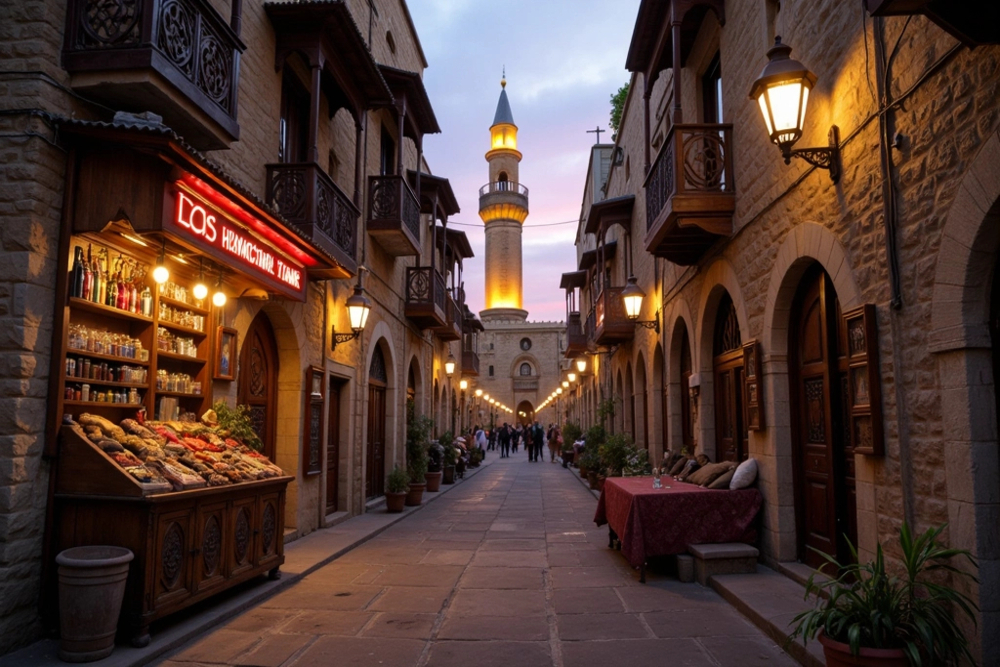A Journey Through the World’s Oldest Still-Inhabited Cities
Aiden Reese
2025-10-17
6 min read

Cities are more than just collections of buildings and roads; they are living narratives. Across the world, a handful of cities have stood the test of time, bearing witness to millennia of upheavals, triumphs, and transformations. Exploring the world's oldest still-inhabited cities is like stepping into the annals of human history, where every street echoes with ancient stories, every stone holds centuries of memories, and the air itself seems infused with the spirit of bygone eras. If you’re as fascinated by history as you are by modern-day wanderlust, embarking on this unique exploration offers a chance to uncover some of humanity’s longest-standing cultural treasures. From the winding alleys of Damascus to the ancient charm of Varanasi, each city offers an unparalleled connection to our shared past.
Damascus The Timeless Jewel
Topping countless lists of the world’s oldest cities, Damascus in Syria is believed to have been continuously inhabited for over 12,000 years. Known as the "Pearl of the East," Damascus plays a pivotal role in the cradle of civilization. Its strategic location at the crossroads of trade routes helped it flourish as an economic and cultural hub through the ages. A visit to the Old City of Damascus is like walking through a living museum. You’ll find centuries-old souks such as Al-Hamidiyah, where aromas of spices and echoes of haggling merchants transport you back in time. Alongside bustling marketplaces are landmarks like the Umayyad Mosque, considered one of the grandest in the Islamic world. Yet for all its ancient splendor, Damascus has always managed to adapt, its timeless character blending seamlessly with modern chaoses of daily life.
Varanasi A Spiritual Epicenter
Located along the banks of the sacred Ganges River, Varanasi is not just one of India’s oldest cities but also one of the world’s most spiritual. Its origins are believed to date back over 3,000 years, with some legends tying its past to Lord Shiva himself. For centuries, it has served as a beacon for Hindu pilgrims seeking spiritual enlightenment and liberation.
What sets Varanasi apart is the way life and death coexist so openly. Along the ghats (riverfront steps), rituals of celebration and mourning unfold side by side, creating a stark yet profound display of life's dualities. Watching the sunrise over the Ganges as priests perform the Aarti, flames flickering against the water, is an experience that transcends time. Despite its deeply ancient roots, Varanasi thrives in its vibrant chaos, a city constantly renewing itself alongside India's rapid modernization.

Byblos The Birthplace of the Alphabet
Situated on Lebanon’s Mediterranean coastline, Byblos (known locally as Jbeil) is celebrated as one of the oldest continuously inhabited cities in the world. Unlike the hustle of larger modern cities, Byblos retains its charm with a quieter, more rustic ambiance. Archaeological evidence shows human presence here dating back nearly 7,000 years, making it a key player in the annals of early civilization. Byblos is best known as the place where the Phoenician alphabet, the precursor to modern alphabets, was developed. Today, visitors will find a mix of antiquity and leisure, with its ancient ruins, cobbled streets, and picturesque harbor sharing space with contemporary cafes and boutique shops. This juxtaposition makes Byblos a reminder of how the past enriches the present.
Athens Where Democracy Was Born
For over 3,400 years, Athens, Greece, has been at the forefront of Western civilization. The city, widely regarded as the birthplace of democracy, philosophy, and theater, is a monumental testament to human achievement. From the majestic ruins of the Acropolis to the ancient marketplace of Agora, Athens offers an unparalleled connection to humanity’s intellectual and cultural history. Yet Athens isn’t merely a historical relic. It’s a bustling, modern metropolis that actively preserves and celebrates its past. Museums, cultural festivals, and architectural restoration projects keep the legacy of ancient Greece alive while the city pulsates with urban energy, fine dining, and vibrant nightlife.
Plovdiv Where Cultures Intersect
Though often overshadowed by better-known cities, Plovdiv in Bulgaria deserves a spot on any ancient-history enthusiast's itinerary. With a history stretching back over 6,000 years, Plovdiv has been home to a melting pot of cultures, including Thracians, Romans, Ottomans, and Slavs. Its well-preserved Roman Theater is one of the highlights, still hosting performances and concerts to this day. The old town’s cobblestone streets and colorful 19th-century houses offer a striking contrast to the modern art and culture that thrive in the city center. Plovdiv’s ability to beautifully blend its historic and contemporary identities is what sets it apart from other ancient cities.
Exploring the Past While Living the Present
Dozens of cities around the globe maintain their claim to being the oldest still-inhabited, each offering a unique lens into humanity's history. Their allure isn’t just about the monuments or ruins but about the culture, the people, and the stories that continue to thrive within their ancient frameworks. Visiting these cities is an invitation to pause and appreciate how far humanity has come, while also connecting with the timeless traditions that remain rooted in each place’s identity. Whether you wander through the souks in Damascus, meditate by the Ganges in Varanasi, or marvel at the architectural splendors of Athens, these cities promise experiences that are as enriching as they are unforgettable.



